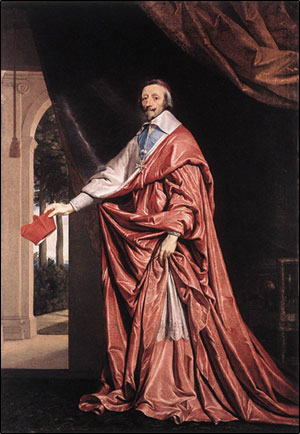
Religious Wars and Catholic Reformation
 Although the Protestant Reformation had its roots in disagreements about theology, it led to important economic and political changes. Religious differences caused war and destruction.
Although the Protestant Reformation had its roots in disagreements about theology, it led to important economic and political changes. Religious differences caused war and destruction.
Princes in Northern Germany converted to Protestantism, ending the authority of the Pope in their states. Meanwhile, the Hapsburg family and the authority of the Holy Roman Empire continued to support the Roman Catholic Church. Conflicts between Protestants and Catholics in the Holy Roman Empire led to the bloody Thirty Years’ War.
In France, the Catholic monarchy under Henry IV granted the Huguenots freedom of worship with the Edict of Nantes. With Henry's death, France came under the influence of Cardinal Richelieu who revoked the Edict. This led many Huguenots to leave the country for North America.
Richelieu was not only concerned with religion. He allied with the Protestants against the Catholics in the Thirty Years' War because he saw the Hapsburg rulers as a greater threat to France's power.
The Catholic Church was not accepting of the Protestant Reformation. The Church responded with its own reforms as part of the Catholic Reformation, or Counter Reformation. Most of the changes that were implemented resulted from the decisions made at the Council of Trent, which reaffirmed most Church doctrine and practices. The Church also created the Jesuits to spread the word of the Church, and established the inquisition, which were courts where they would try heretics and enforce Church doctrine.




